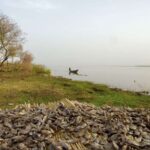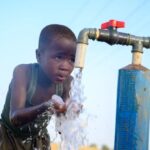EU, Plan train youths to stabilise water resources
The Federal Government has expressed concern over the 40 million livelihoods threatened by the depletion of water resources in the Lake Chad region, urging international finance institutions and other stakeholders to help arrest the threat.
The Minister of Humanitarian Affairs and Disaster Management, Sadiya Farouq, said the ugly narrative in the region made it imperative for concerned institutions and stakeholders to safe lives and means of livelihood within the region.
She made the remark on Tuesday in Abuja, during the inauguration of the Multi-Sectoral Crisis Recovery Project (MCRP) additional financing organised by the North East Development Commission, (NEDC).
The minister appealed to the World Bank, the United Nations, Africa Development Bank (AfDB), other international institutions and Non-Government Organisations (NGOs) for continuous intervention in making lives more meaningful in the region.
According to her, beside the Lake Chad challenges, states in the North East ravaged by the Boko Haram terrorists needed to be pulled on the path of speedy recovery in terms of education, health, water, sanitation, food security and other economic activities.
She expressed satisfaction with the implementation of the phases of recovery projects as encapsulated in the 2017 Federal Government, Adamawa, Borno and Yobe States Multi-Sectoral recovery documents, which started with about $200 million.
FOR effective youth participation in decision-making and stabilisation of the Lake Chad region, the European Union (EU), in partnership with Plan International, has trained about 1,000 youths in Niger Republic, Nigeria and Cameroon.
The Regional Project Manager of the EU Project, Plan International, Lisa Angulo, disclosed this at the Regional Exchange Meeting on Youth Leading the Stabilisation efforts in the Lake Chad Basin.
According to Angulo, the EU-funded project is aimed at enhancing youths’ participation in the stabilisation of the Lake Chad region, noting that in the region, most decisions are made by the older people in power, despite that majority of the people are youths. “So, we are trying to engage youths in decision-making, to have a stronger society.”
The Project Manager said they were working with 30 youths in Niger Republic, 15 in Cameroon and 25 in Borno, Nigeria, adding that the beneficiaries were expect to spread the knowledge to other youths in the region.













